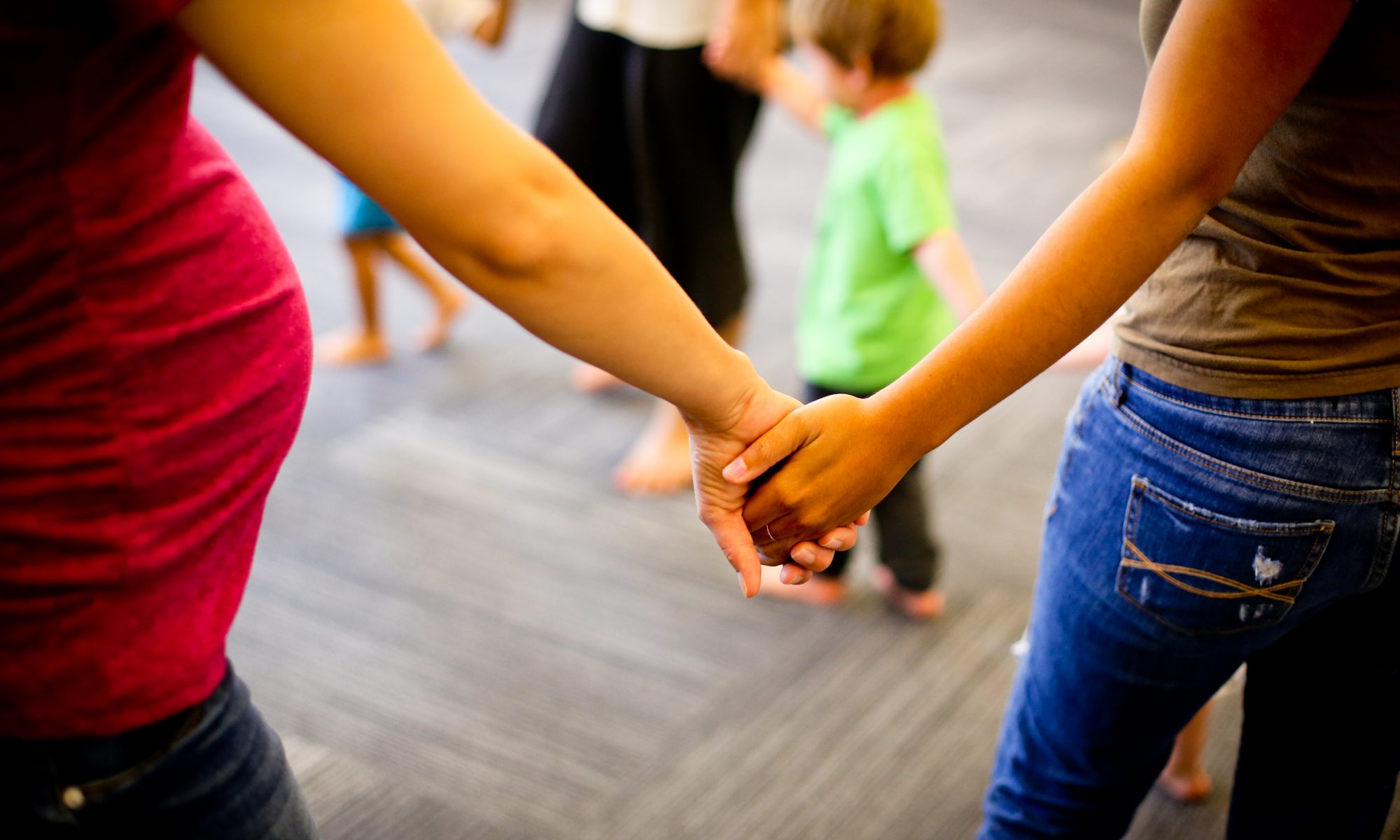[vc_row][vc_column][vc_column_text]My earliest memories involve music. My mother would sing I’ve Got a Crush on You to me as a very young child. Most of my closest friends came to me through music. I met my wife because of music. When our children came into the world, music was playing in the delivery room. Music has been the master builder in my life, building bridges and strengthening relationships. I knew from a young age that my career would involve bringing music to others. The relationships with those with whom I make music are some of the strongest in my life. How does music do that? How does it wrap itself around the invisible connections between people and reenforce them?[/vc_column_text][/vc_column][/vc_row][vc_row][vc_column][vc_column_text]
Trust and Empathy
As a kid, I was acutely aware that kids I sang with in choir or played with in band were closer friends than those friends with whom I didn’t make music. In fact, as a 40-something year old man today, the school age friends I remain connected to today are all friends who shared music making with me. While one could argue that this was simply because of the amount of time we spent together, science tells us there’s a bit more to it.
When you make music with someone, it has an impact in the part of the brain (the supramarginal gyrus in the cerebral cortex for those who really want to know) that deals with empathy, trust, and compassion. This area lights up when one makes music. If you’re making music with others, you will be more likely to empathize with them, to feel compassion toward them. Perhaps this is the secret behind the documentary Playing for Change: Peace through Music. If you feel empathy and compassion for a fellow human. you are more likely to relate to them. It’s hard to call someone you relate to an enemy.[/vc_column_text][vc_column_text]

[/vc_column_text][/vc_column][/vc_row][vc_row][vc_column][vc_column_text]
Teamwork and Cooperation
Think about what it takes to make music with other people – you must coordinate entrances, tuning, rhythm, pitch, breathing, dynamics, phrasing…the list goes on and on. Much like team sports, making music with others requires giving up a little of yourself to be part of the whole. All of this cooperative work can result in something called biological entrainment. As groups breath together, heartbeats can become synchronized. This biological coordination happens pretty quickly. Pretty amazing, isn’t it? Psychologist Jill Suttie puts it this way:
Performing music involves coordinating of our efforts, too…at least if we want to produce a pleasing sound. According to researchers, when we try to synch with others musically—keeping the beat or harmonizing, for example—we tend to feel positive social feelings towards those with whom we’re synchronizing, even if that person is not visible to us or not in the same room. Though it’s unclear exactly why that happens, coordinating movement with another person is linked to the release of pleasure chemicals (endorphins) in the brain, which may explain why we get those positive, warm feelings when we make music together.
[/vc_column_text][/vc_column][/vc_row][vc_row][vc_column][vc_column_text]
Musical Bridges
There are so many instances in which music has been the bridge between cultures – as the art form exists in every culture on earth. Take the instance of Daniel Barenboim, a well-known Jewish conductor, and Edward Said, a Palestinian born American citizen. Their friendship resulted in some musical bridge building. From Culturesofresistance.org:
Their friendship led them to hold a series of public talks at New York’s Carnegie Hall, which were gathered in the book Parallels and Paradoxes. The reception was so positive that in 1998 the two launched an ambitious project together: the West-Eastern Divan, an annual summer workshop that brings together young musicians from Israel and the Arab world (Egypt, Syria, Lebanon, Jordan, Tunisia and Palestine) for musical training and cultural seminars on neutral ground. The first workshop took place in Weimar, Germany, in 1999. Since 2002, the workshop has made its permanent home in Seville, Spain. Each summer, following the workshop, the West-Eastern Divan Orchestra gives a series of public concerts. They have performed in Europe, North and South America, Cairo, Ramallah, and Istanbul.
This orchestra is still in existence and continues to build bridges between young musicians from these different cultures. The groups motto? Equal in music.[/vc_column_text][vc_column_text]

[/vc_column_text][/vc_column][/vc_row][vc_row][vc_column][vc_column_text]
A Life Well-lived in Music
I am eternally grateful to count among my close friends musical colleagues, former students, and fellow musicians from my childhood. Not all of those elementary friends went on to be professional musicians, but most still make music on a regular basis. They’ve encouraged their kids to get involved with musical activities, as have I. The gift of music creates ripples that move outward, impacting the musicians, their audiences, and how their audiences interact with the world.
It’s what we need – more and more music.
[/vc_column_text][/vc_column][/vc_row]

